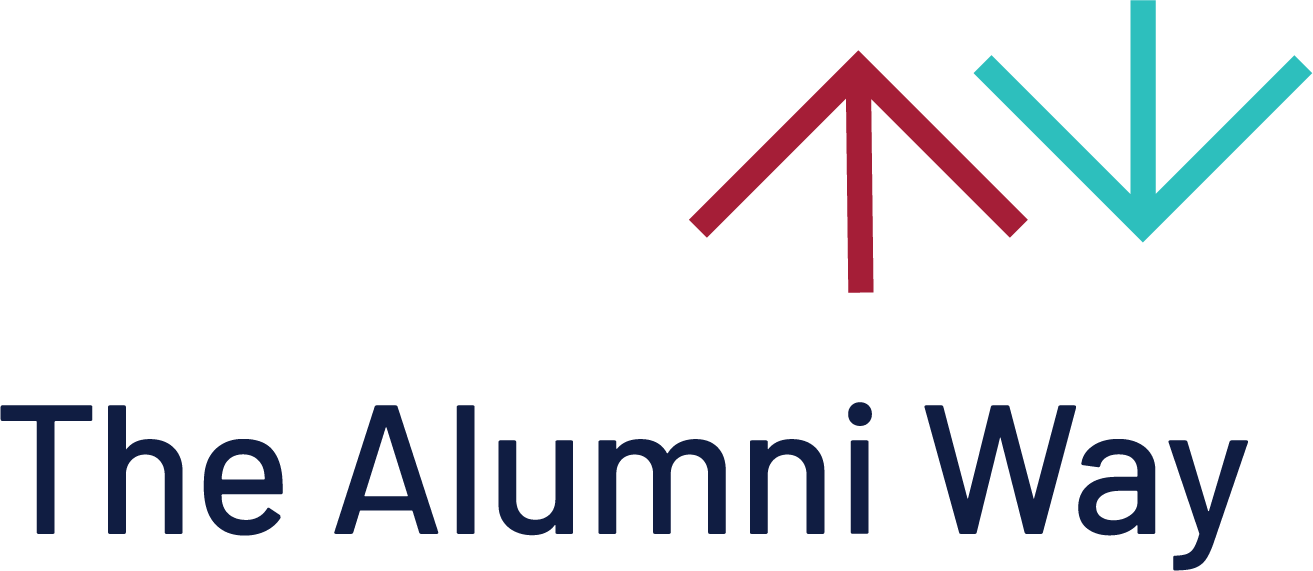5 Must-Read Articles on Networks for Alumni Professionals
Alumni networks are powerful.
As alumni professionals, we know this is to be true in our gut. After two years of creative and innovation programming as part of a great alumni relations pivot, we are tired and need a momentum boost. The purpose of this post to give you a chance to dive in and refresh. Here are some of the best articles from the past 12 months on networks, to extend your alumni thinking and inspire your work.
1- Community or Network: What's the Difference?
in: The Medium published July 2021 - by Kathy Edersheim (Impactrics)
If you ever used these words interchangeably, Kathy's article makes an argument to think deeply about what you are trying to achieve and choose 'network' or 'community' accordingly. Are we creating alumni networks, or, alumni communities? (or both?)
Quote: "The differences between community and network are defined by the ways that you connect to others."
Read the full article here
2 - Who do we Turn to When Everything Seems Uncertain?
in: WISE Words of the Qatar Foundation published September 2021 - by Lucy Ashman (Teach for All) and Abi Nokes (inHive)
Bookmark this page when you need a reminder on the importance and power of alumni networks. Lucy and Abi have articulated so much of what many of us are thinking when we do our day-to-day work with and for alumni. It's value-driven. Our work has incredible purpose.
Quote: "We find that the strongest networks in education are alumni networks – of schools, institutions, and leadership programs. People in these networks often have similar purposes and values. As a result of their shared experiences, they have deep, emotional connections to each other and an in-built willingness to share solutions and work together to support others."
Read the full article here.
3 - Alumni associations should help tackle humanity's big challenges
in: Times Higher Education published November 2021 - by Michael Madison (University of Pittsburgh School of Law) and Martin Skladany (Pennsylvania State University)
The COVID-19 disruption has enabled alumni relations to reinvent itself. When this article came up in my feed, I shouted to my computer: "finally!" with my hands raised above. I was excited to see others also saw the prospect of new, radical and meaningful opportunities for alumni networks: alumni collectively working together towards some of the greatest challenges facing the planet. This is next generation alumni relations. When universities say they create global leaders, this the their chance to showcase this leadership in action.
Quote: "University alumni communities are, by their nature, populated with skilled professionals. But alumni associations do not leverage their expertise, organise volunteer projects that last more than a few days, or tackle the root causes of problems instead of just treating symptoms. This is a terrible missed opportunity, for both higher education institutions and the world at large."
Read this article here.
4 - Alumni networks reimagined: Innovations expanding alumni connections to improve postsecondary pathways
In: Who You Know - Clayton Christensen Institute Publications published in February 2021 - by Julia Freeland Fisher (Clayton Christensen Institute) and Richard Price (Western Governors University)
Grab your extra hot latte or mini pot of tea. Indulge in an Alumni Friday of reading - and start here. Even the Executive Summary (or the article noted here) are lengthy, but well worth it. Looking for some evidence-based insights on the power of alumni social capital? This is a great place to start. Add a 'healthy brownie' with your beverage to make this a professional development session for yourself -- with a difference.
Quote: "Postsecondary institutions with well-established endowments could start to optimize for access to—rather than just the prestige of—their alumni networks. This will depend on visionary leadership and cross-departmental efforts, particularly across career services, student support, and advancement."
Read the Executive Summary or Full Report here. (and if you like this report, highly recommend reading Julia's book Who You Know: Unlocking Innovations That Expand Students' Networks .)
5 - The Payoff of Intentional Networking
in: CASE Currents Magazine published in the January/February 2022 edition - by: Sandra Rincón (NL Network - The Netherlands) and Andrew Shaindlin (Grenzebach Glier & Associates)
When we think of alumni networks and networking, it's usually for alumni, students, or both. Networks and networking for alumni professionals is equally important, if not more so. Sandra and Andrew share their own networking journey working within the alumni field. They offer some of the basics of networks and networking too. If you haven't yet put an #AlumniFriday in place to meet other alumni professionals or your alumni individually on a regular basis, this article will help motivate you to do so! Creating mutually beneficial opportunities in your network will help to build, innovate and hone your alumni relations practice.
Quote: "Alumni, donors, and other stakeholders in your institution appreciate the benefits of expanding their networks for personal and professional development. As advancement professionals, we create networking opportunities for this reason. But did you ever stop to reflect on why building your own network benefits you?"
Read the full article here.
Bonus!
I am always excited when new alumni articles emerge in academic literature. This one is hot off the press! If you work at a university and have not yet activated your access to the online university library system of articles - put this on the 'to do' list this year. Start with this article: Are Networks Our Missing Superpower for Education Around the World? published in the December 2021 volume of Childhood Education by Abigail Nokes of inHive.
Happy reading!
Inspire fellow alumni professionals and alumni volunteers by sharing this article or signing up to The Alumni Way monthly newsletter!

